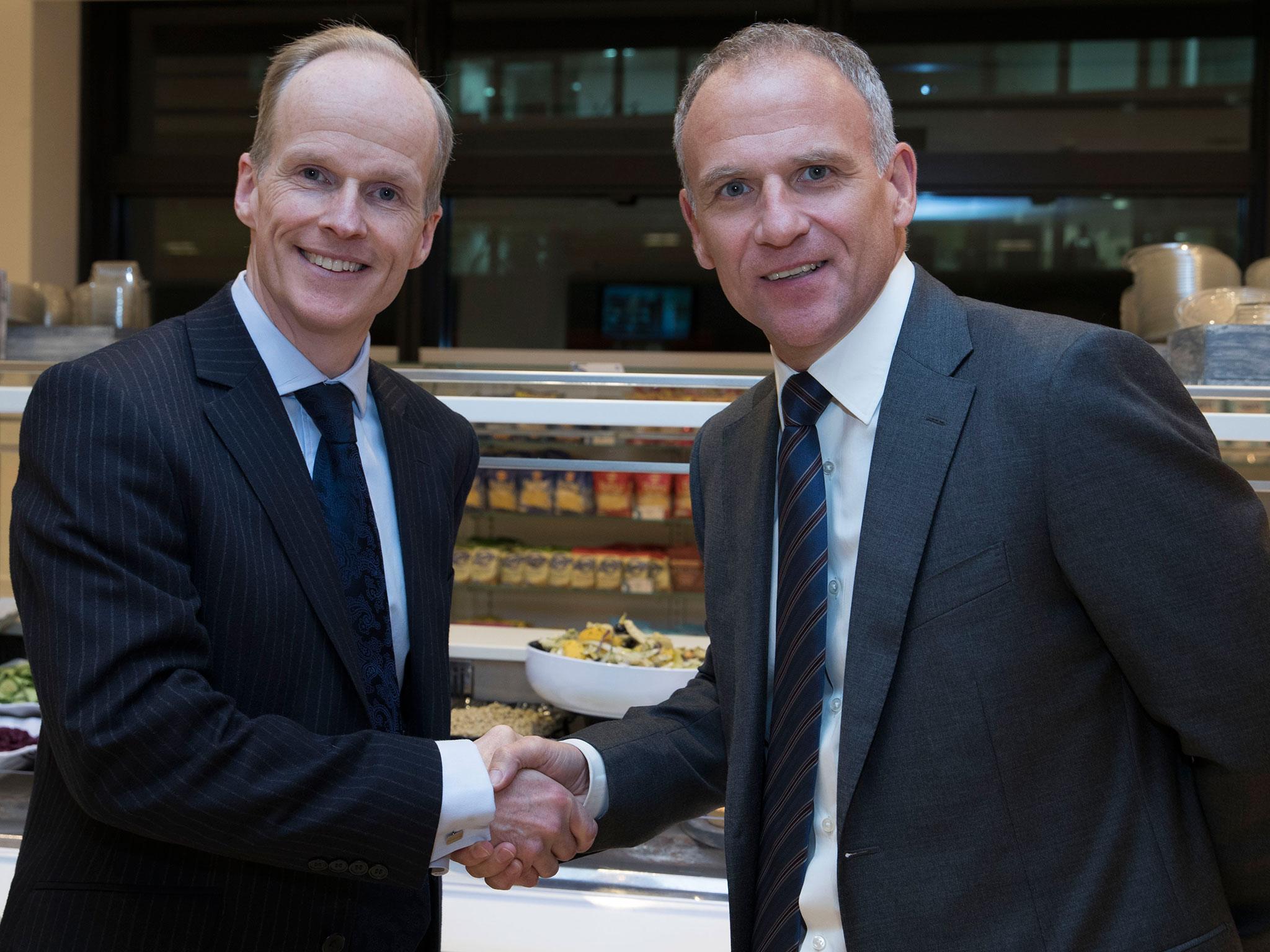Tesco pay shock as boss David Lewis sees his package cut despite first sales rise in seven years. What's going on?
The relative restraint gives shareholders sceptical of the grocer's £3.7bn Booker merger plan one less thing to protest about

Your support helps us to tell the story
From reproductive rights to climate change to Big Tech, The Independent is on the ground when the story is developing. Whether it's investigating the financials of Elon Musk's pro-Trump PAC or producing our latest documentary, 'The A Word', which shines a light on the American women fighting for reproductive rights, we know how important it is to parse out the facts from the messaging.
At such a critical moment in US history, we need reporters on the ground. Your donation allows us to keep sending journalists to speak to both sides of the story.
The Independent is trusted by Americans across the entire political spectrum. And unlike many other quality news outlets, we choose not to lock Americans out of our reporting and analysis with paywalls. We believe quality journalism should be available to everyone, paid for by those who can afford it.
Your support makes all the difference.Something of a surprise end to the week in the City: David Lewis, the boss of Tesco, has seen a £600,000 fall in his income, despite overseeing the first rise in sales at Britain’s biggest grocer in seven years.
He’s not exactly going hungry – he still made £4.15m in the last year. But if you consider how many CEOs get pay rises for doing nothing very much it’s actually rather notable, particularly given the retailer’s recent revival in a very tough operating environment.
Not only has the company returned to growth under the stewardship of Mr Lewis, the most recent set of results saw Tesco outperforming both the City’s and its own expectations. Even the troubled overseas businesses have been looking more chipper.
The scandal-wracked Titanic of British retail managed to miss the iceberg after hiring the former Unilever executive and it’s once again steaming ahead. Yet the remuneration committee cut his bonus to £2.4m (75.6 per cent of the maximum pay out) for the 2016-2017 year, compared with the £3m they handed him for the previous year.
Fun fact: He did at least get £9,000 to spend on “the installation of security measures to meet business standards” this time around. That’s a very expensive panic button chez Lewis.
But back to the business at hand: Tesco says the bonus was calculated based on the “stretching” targets set for Mr Lewis, including for sales and operating profits plus personal objectives. I have no clue as to why he was handed 75.6 per cent of his maximum while his finance director Alan Stewart (whose overall package fell by 14 per cent) got only 74.2 per cent.
It all seems rather arbitrary. Perhaps Mr Stewart’s tie was just a bit too colourful on dress down Friday when the chairman was in the office.
As for the forthcoming year, however, Mr Lewis’ basic will remain flat at £1.25m, and his “bonus opportunity” will also remain unchanged at 250 per cent of that.
You couldn’t really describe it as restraint. But this is about as close to it as corporate Britain gets, and to put it in perspective, Sir Terry Leahy made £7.15m in his last year as CEO of the company. The latter’s unlamented successor Philip Clarke made £4.6m in his first year (it fell to £1.3m the next, but that shouldn’t come as a big surprise given that Tesco’s numbers fell off a cliff).
It’s easy to make the comparison because the grocer has published a “group chief executive remuneration history” with a single figure for pay given for each year for the past eight.
Could it be that Tesco, a big, high profile, consumer brand, is subtly trying to tell us something here?
Something like, look, see we’re the good guys! We’re responsible. We’ve changed. That huge fine we got from the Serious Fraud Office as part of the deferred prosecution agreement to deal with our accounting scandal? Now firmly in the past.
We’re doing jolly well now, but unlike the rest of them, our stretching targets really are stretching. The system works! At least at Tesco.
But there may also be another reason. Mr Lewis has been pursuing a merger with wholesaler Booker – currently it’s with the competition watchdogs where it is likely to remain parked for months – through a £3.7bn cash and share deal.
That deal has been weighing heavily on Tesco’s shares, with some investors feeling that it’s better for Booker than it is for Tesco, and that it represents a distraction from Mr Lewis’ turnaround efforts. The grocer has already lost one senior non-executive director over the plans.
The fact that Mr Lewis’ pay has dipped a bit gives restive shareholders one less thing to make a fuss about when they have lunch with the board.
Of course, I’m sure Tesco’s remuneration committee would deny that Booker played any role in their thinking when they finalised the senior executives’ packages. They were focussed purely on those targets. Did I mention that they’re stretching?
Join our commenting forum
Join thought-provoking conversations, follow other Independent readers and see their replies
Comments